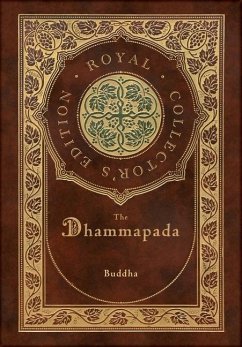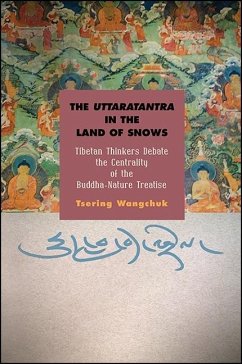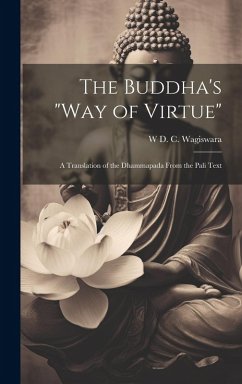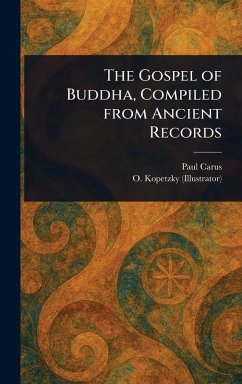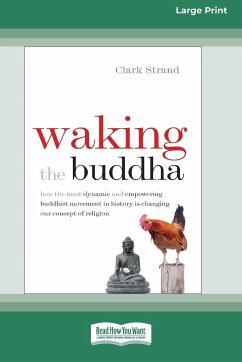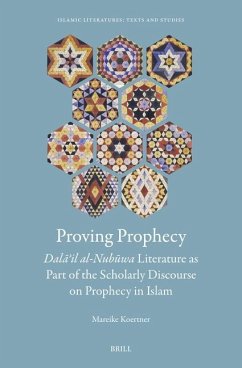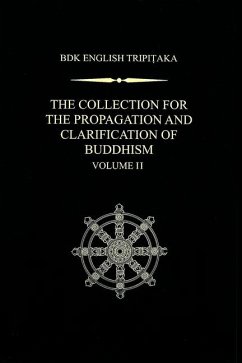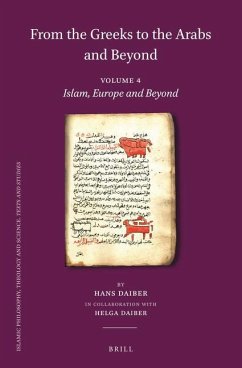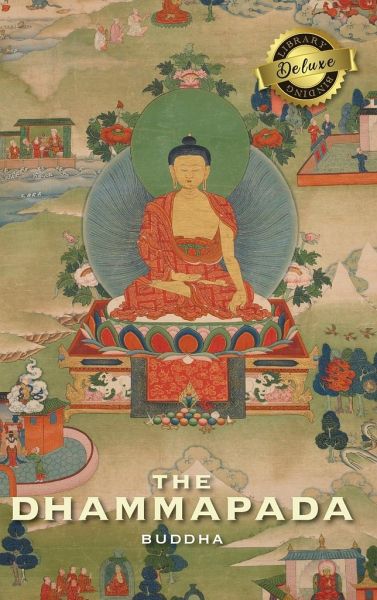
The Dhammapada (Deluxe Library Edition)
Versandkostenfrei!
Versandfertig in 1-2 Wochen
25,99 €
inkl. MwSt.
Weitere Ausgaben:

PAYBACK Punkte
13 °P sammeln!
The Dhammapada is a collection of sayings of the Buddha in verse form. It is one of the most widely read and best known Buddhist scriptures. According to tradition, the Dhammapada's verses were spoken by the Buddha on various occasions. Each saying recorded in the collection was made on a different occasion in response to a unique situation that had arisen in the life of the Buddha and his monastic community. The Dhammapada is considered one of the most popular pieces of Theravada literature. The text is part of the Khuddaka Nikaya of the Sutta Pitaka, although over half of the verses exist in...
The Dhammapada is a collection of sayings of the Buddha in verse form. It is one of the most widely read and best known Buddhist scriptures. According to tradition, the Dhammapada's verses were spoken by the Buddha on various occasions. Each saying recorded in the collection was made on a different occasion in response to a unique situation that had arisen in the life of the Buddha and his monastic community. The Dhammapada is considered one of the most popular pieces of Theravada literature. The text is part of the Khuddaka Nikaya of the Sutta Pitaka, although over half of the verses exist in other parts of the Pali Canon, a collection of Buddhist writings of Theravada Buddhism.





